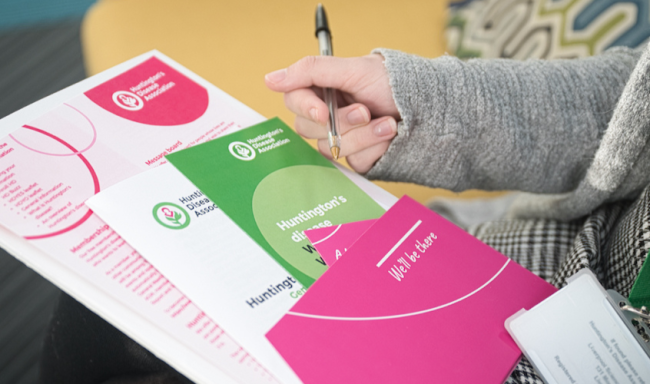A study looking to identify factors that influence CAG repeat expansion, and to measure and characterise CAG repeat variability in the huntingtin gene (HTT) in germline (sperm) and somatic cells (blood).
Discovering Intergenerational Genes in Huntington's Disease - DIGG-HD
University College London
About the study
DIGG-HD is a research project which will lead to a better understanding of how the Huntington’s Disease (HD) gene is inherited, and how much the CAG repeat that causes Huntington's disease changes between generations. This is important firstly as a greater knowledge of inheritance would provide people with more information when they are going through genetic counselling, and may aid decisions surrounding reproductive planning. Secondly, therapies are being developed for Huntington's disease and this study will provide data to understand whether semen could potentially be used to track therapy response, and to understand the effects of new therapies on sperm.
What does it involve?
Eligible men with Huntington's disease will attend for a study visit lasting around 35 minutes during which you will be told more about the study and confirm if you would like to take part. We will ask participants about their medical and family history and will take a blood sample. We will provide participants with a pre-paid sample collection kit and will explain that they will need to create a semen sample at home within a month of the visit.
Study visits will take place at University College London, Queen Square in London (or other collaborating sites). We reimburse travel costs for participants; if travel expenses are expected to be over £100 we invite participants to please discuss this with us in advance.
Who can take part?
The following eligibility/inclusion criteria will be used:
- Are male; and
- Are 18-65 years of age, inclusive; and
- Are capable of providing informed consent; and
- Are capable of complying with study procedures, including donating a semen sample, and donating a blood sample
How to get involved?
Get involved in other studies
If you want to find out more about taking part in free and paid research studies or see the results of past studies that our community have been involved in, please visit the page below.




